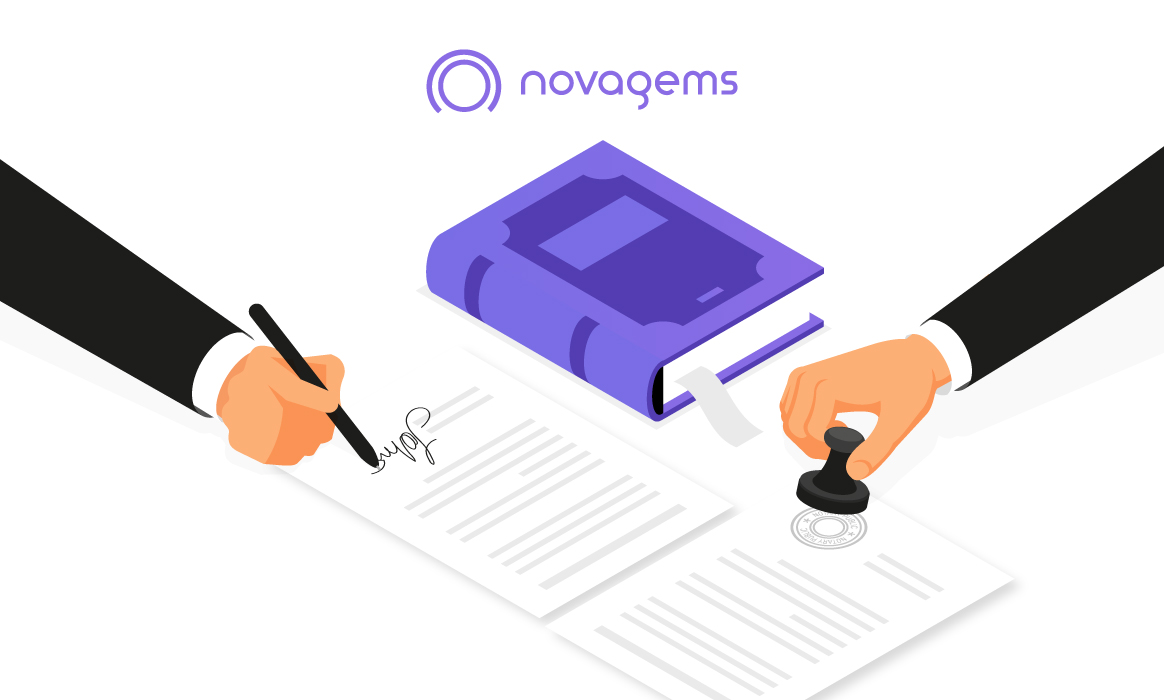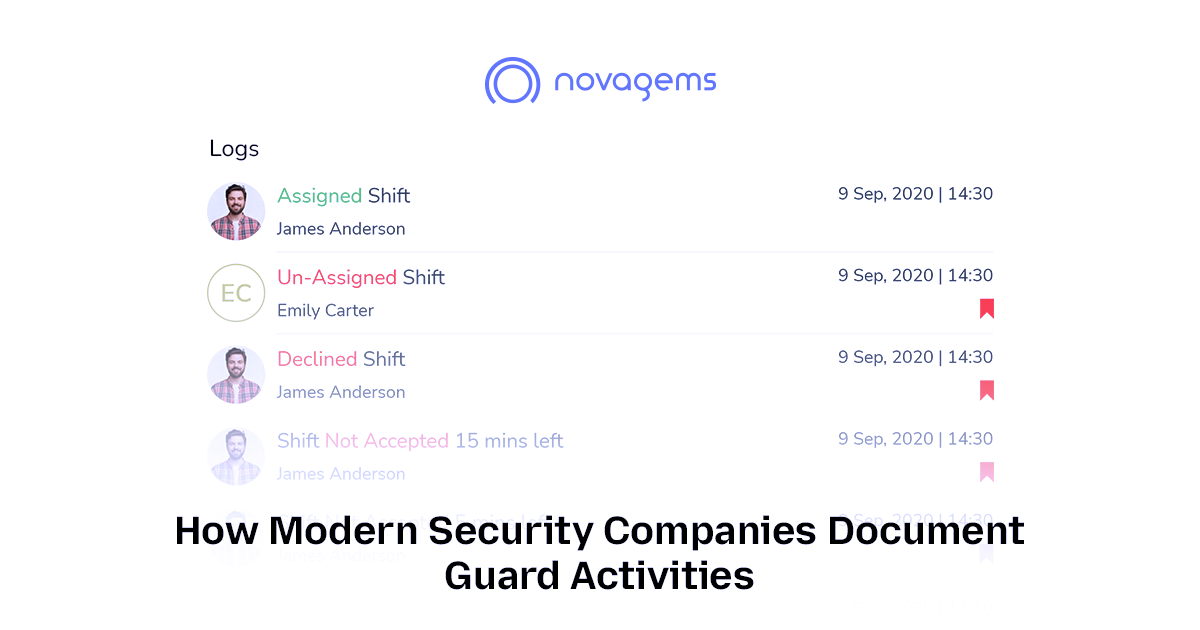Canadian Laws Security Guards Need To Know About
Published on: Wed, Dec 7, 2022
Read in 11 minutes

Working as a security guard in Canada is more than just wearing a uniform and patrolling a property. It comes with legal responsibilities and strict rules that vary by province. Understanding the law is essential for every security guard, company, or client working with private security professionals.
This blog explains the most important Canadian security guard laws. It includes licensing details, rules around arrests and force, background checks, privacy laws, and penalties for violations. Everything is written in a simple and easy-to-understand format.
National Laws Every Security Guard Should Know
While licensing and regulation are handled at the provincial level, some laws apply to all guards across Canada.
1. Citizen’s Arrest – Criminal Code of Canada
Under the Criminal Code, private individuals, including security guards, may conduct a citizen’s arrest. This is allowed when a crime is committed on the property the guard is protecting or immediately afterward. The guard must witness the act or have reasonable grounds to believe the suspect committed the offense.
However, guards must contact the police right away and should not attempt to handle serious crimes alone.
2. Use of Force – Criminal Code of Canada
Canadian law only allows the use of force if it is reasonable and necessary. Security guards may use physical force to stop someone from harming others or committing a crime, but they must not go beyond what is required. If the situation can be handled verbally, then no physical action should be taken.
Another important law that Canadian security guards need to familiarize themselves with is the Criminal Code of Canada. The act deals with the specifics of criminal activities and allows one to make an arrest when finding anyone guilty of any criminal offense. Section 494 of the Criminal Code of Canada specifies that even members of the general public can make arrests.
Security guards are different from conventional peacekeepers, and the act does not recognize them as peacekeepers. So, their authority to make an arrest is just as limited as any other member of the general public. As long as the security guards have the necessary evidence and appropriate training even, they can arrest individuals for de-escalating any given situation.
Regarding the breach of peace, there is no specific Criminal Code for breaching the peace. However, section 30 of the Criminal Code of Canada provides one with authority to anyone, including a public member, to prevent or detain anyone trying to breach the peace. But this section is more like a preventive remedy to safeguard peace which means you must have a valid reason to detain someone.
This rule applies nationwide and ensures that private guard use of force in Canada is controlled and justifiable.
3. Trespass Laws
Trespassing laws differ slightly between provinces, but all allow guards to ask people to leave private property. If someone refuses, the guard may detain them temporarily until police arrive, provided the response is reasonable.
Guards cannot use force to remove a person unless there is a threat of harm or damage.
4. Privacy and Data Rules
Security guards often work with personal data such as identification documents, CCTV footage, and access logs. Federal privacy law says this information must be protected and only used for its intended purpose.
Security guards must also be aware of privacy laws in Canada, including the federal Personal Information Protection and Electronic Documents Act (PIPEDA) and provincial privacy laws. These laws govern the collection, use, and disclosure of personal information, including video surveillance footage and other information collected by security guards.
It’s important for security guards to stay up-to-date on changes to the laws and regulations that apply to their work. They should also receive regular training and education to ensure they are equipped to perform their duties safely and effectively.
Guards cannot share footage or personal information unless it is required by law or part of an official report.
5. Firearms Act
The final necessary law for security guards in Canada is the Firearms Act. As you might have already guessed, not everyone in Canada can carry firearms. One of many qualities that set Canada apart from its neighbors. The most commonly asked question is “can security guards carry guns in Canada?” Security guards can carry the following to assist and protect the area they are patrolling -
- A Banton
- Handcuffs and
- Firearms if they comply with a valid firearms licence
so I hope this answers your question.
The Firearms Act deals with the authorization to move, import, and export firearms.
However, the Firearms Act has a couple of exceptions that deal with businesses and services where firearms are a must. Security guards in Canada can only carry and use a firearm if their employer issues the same. Besides, the security guard must have a valid firearms license for carrying and using the weapon.
Every security guard on duty must carry their firearms license and present the same upon request.
Province-Specific Regulations and Licensing Rules
Every province manages its own licensing rules. To work legally, security guards must follow their province’s requirements for training, licensing, and conduct.
Ontario
Ontario security guard license laws are governed by the Private Security and Investigative Services Act. The act outlines who can become a guard, how to apply, and the rules for working on duty. The Security Services Act is primarily concerned with different aspects of the job description of a security guard in Canada.
As one of the country’s most crucial security acts, the Security Services Act overshadows many other laws. Besides, the act has different provisions for security guards and security guard companies, and businesses.
The Security Services Act specifies that every security guard officer must have a valid professional license to perform any security-related task. The act gives the registrar to decide if the security tasks you are engaging in are incidental or a primary duty of your job as a security guard. Additionally, you must apply for your security guard license from the registrar.
The Security Services Act further specifies that you must be an ordinary Canadian resident to renew your license unless you are exempt by regulation. But remember, renewing your licenses is mandatory, and you will need to pay an additional fee for renewal.
Key requirements:
- Complete 40 hours of training from an approved provider.
- Pass a government exam with at least 62 percent.
- Submit a criminal record check called a CRJMC.
- Be at least 18 years old and legally allowed to work in Canada.
A physical license must be carried while working. Digital licenses are accepted but must be shown along with ID when asked. The license is valid for two years. For security license renewal in Ontario, you must reapply before the expiry date and confirm that your background is still clear.
Learn more: Ontario PSISA Overview
British Columbia
BC security guard licenses are managed under the Security Services Act Canada. To get a security guard license in Canada if you live in BC, you must:
- Complete Basic Security Training (BST), which is usually 40–70 hours.
- Pass the provincial exam.
- Be at least 19 years old with no serious criminal history.
Guards in BC must wear proper uniforms and carry a license card. Both digital and physical versions are used. Private security guards may not carry weapons unless they are specifically licensed. The security guard firearms rules in BC state that only those who work for armored car companies and have special authorization may carry firearms.
Alberta
In Alberta, security guards must:
- Complete the Alberta Basic Security Training (ABST) course, typically 40 hours.
- Pass the exam approved by the Solicitor General.
- Undergo a background check. Fingerprinting may be required.
Guards must carry their license at all times. The license is valid for two years and must be renewed on time to continue working legally.
Manitoba
In Manitoba, both guards and the companies they work for must be licensed. Requirements include:
- Completing 40 hours of training.
- Passing a background screening, including references and a criminal check.
- Ensuring the business is bonded and insured.
Licenses are issued for one or two years. Working without a license is illegal and may result in penalties.
More info: BC Security Worker Licensing
Can Security Guards Use Force or Arrest in Canada?
This is one of the most common questions: Can a security guard detain someone in Canada? The answer is yes, but only under strict conditions.
A guard may detain someone if:
- A crime is happening on the property they are hired to protect.
- The crime was committed recently, and the guard has reasonable grounds to believe the suspect is responsible.
- It is safe and reasonable to do so.
Force should only be used if there is no other option. The amount of force must match the situation and cannot be excessive. Guards are encouraged to avoid confrontation and call police whenever possible.
Background Screening and Clearance
Getting a security guard license in Canada requires a clean background check. Each province has its own system, but most involve:
1. Criminal Record Checks
Ontario uses the CRJMC system, which checks for any criminal convictions, court orders, and ongoing legal matters. Other provinces may require a general police check.
2. Vulnerable Sector Checks
This check is needed if the guard will be working in places like schools, hospitals, or senior homes. It ensures the person has no record of violent or sexual offenses.
3. Fingerprinting
In some provinces like Alberta, fingerprinting may be part of the licensing process, especially if the person has lived outside Canada or has a complex background.
Anyone with a recent criminal conviction may be denied a license. If a guard is charged with a crime while licensed, they must report it. Failing to do so may result in suspension or permanent cancellation of the license.
Required Training and Certification Hours
To qualify for a security guard license Canada-wide, you must complete a specific amount of training. Training hours vary by province and may include both in-class and online learning.
Province Training Hours Course Type License Validity Ontario 40 Online or in-class 2 years BC 40–70 Basic Security Training 3 years Alberta 40 ABST 2 years Manitoba 40 Provincial curriculum 1–2 years
Training usually covers:
- Legal powers and limitations
- Emergency response
- Use of force and de-escalation
- Patrol techniques
- Report writing
- Ethics and professionalism
Some provinces also require first aid certification as part of the training program.
What Can Security Guards Legally Do in Canada?
Security guards have a limited but important set of legal powers. Their job is to observe, report, and protect, not to act as law enforcement.
They can:
- Ask people to leave private property and if they have suspicion on anyone they can deny access to unauthorized persons.
- Report crimes and suspicious activity.
- Provide evidence to police, in case they see any crime happening and they have crucial evidence that can help the police officers.
- Detain suspects when legally allowed.
- Enforce safety procedures on client property. Since they have been hired to protect the property and the assets of the clients.
- Use reasonable force to protect themselves, others, or property from harm, but only as a last resort and in proportion to the threat
- Monitor CCTV cameras and other security systems to detect and prevent crime
- Respond to emergencies, such as fires or medical emergencies
- Provide information and assistance to the public
Keep in mind that a security guard is not a police officer. So he cannot exercise the special powers a trained police officer has. The first and foremost duty of a security guard is to observe the premise. Should any threat arise, only then he can take reasonable actions.
They cannot:
- Carry or use weapons unless specially licensed. Or carry firearms or other prohibited weapons, unless they have received the necessary training and certification
- Search individuals or bags without permission or a warrant.
- Make arrests outside of what is allowed under the Criminal Code.
- Violate privacy laws or share personal information without consent.
- Use excessive force or violence against anyone, even if they are committing a crime
- Discriminate against people based on their race, gender, age, religion, or other personal characteristics
Understanding the limits of their role helps guards act responsibly and stay within the law.
Surveillance and Privacy Law for Guards
Many guards use cameras, radios, and digital logs to monitor and protect properties. However, this also comes with responsibilities under privacy laws.
Rules include:
- Only collecting data necessary for job duties.
- Informing people if surveillance is in use.
- Storing footage securely and limiting access.
- Not posting video clips online or sharing them without approval.
- Deleting footage after the required retention period unless needed for a legal matter.
Guards who fail to follow these rules may face serious penalties under federal or provincial privacy laws.
Penalties for Breaking Security Laws
Violating Canadian security guard laws can result in:
- Fines up to $25,000
- Permanent cancellation of your license
- Criminal charges for assault, impersonation, or privacy violations
- Civil lawsuits if someone is harmed by your actions
Examples of violations:
- Working without a valid security guard license
- Using force in a non-threatening situation
- Refusing to show your ID and license
- Failing to report a serious incident
- Using surveillance equipment illegally
Every guard must know the consequences of their actions and operate within the law.
Final Thoughts
Security guards play a valuable role in keeping people, properties, and communities safe. But this responsibility also comes with legal expectations. Whether you are just starting your career or have been working in security for years, staying updated on Canadian security guard laws is essential.
From understanding citizen’s arrest laws to following privacy regulations, each part of your job must align with what is legal in your province. Licensing, training, conduct, and record-keeping are all part of the profession’s standards.
Use this guide as a reference to know your rights, your responsibilities, and your limits. The better informed you are, the safer and more professional you will be in every role you take on.
Get a Free Trial
Sign up For Newsletter
Latest Blog Posts
Get Started
Start being productive & grow your business
with Novagems





